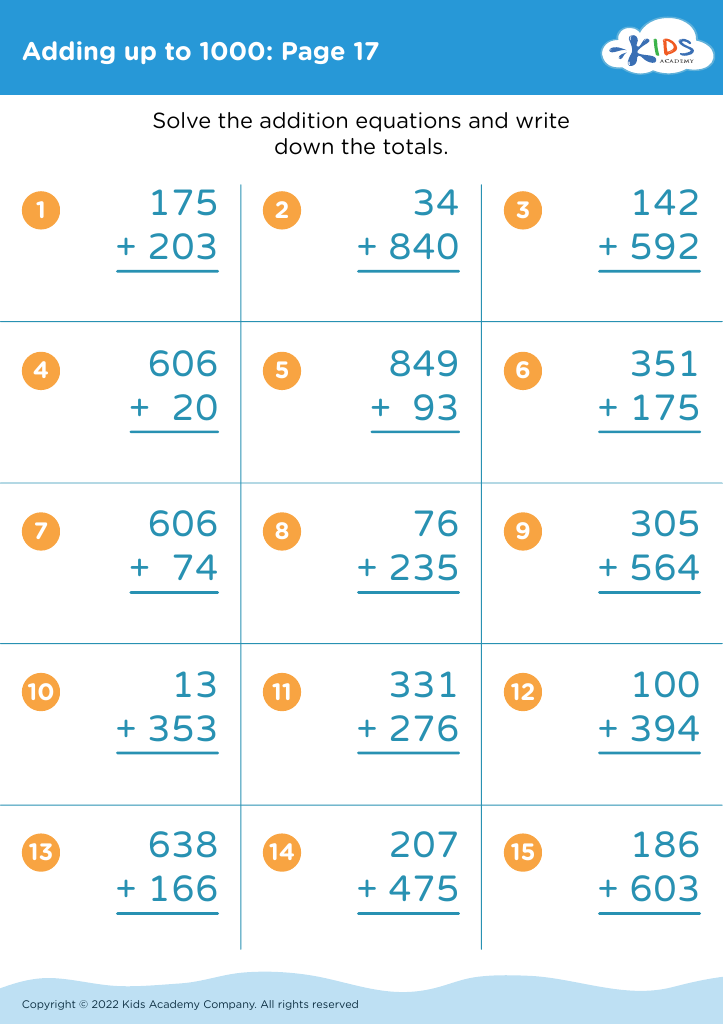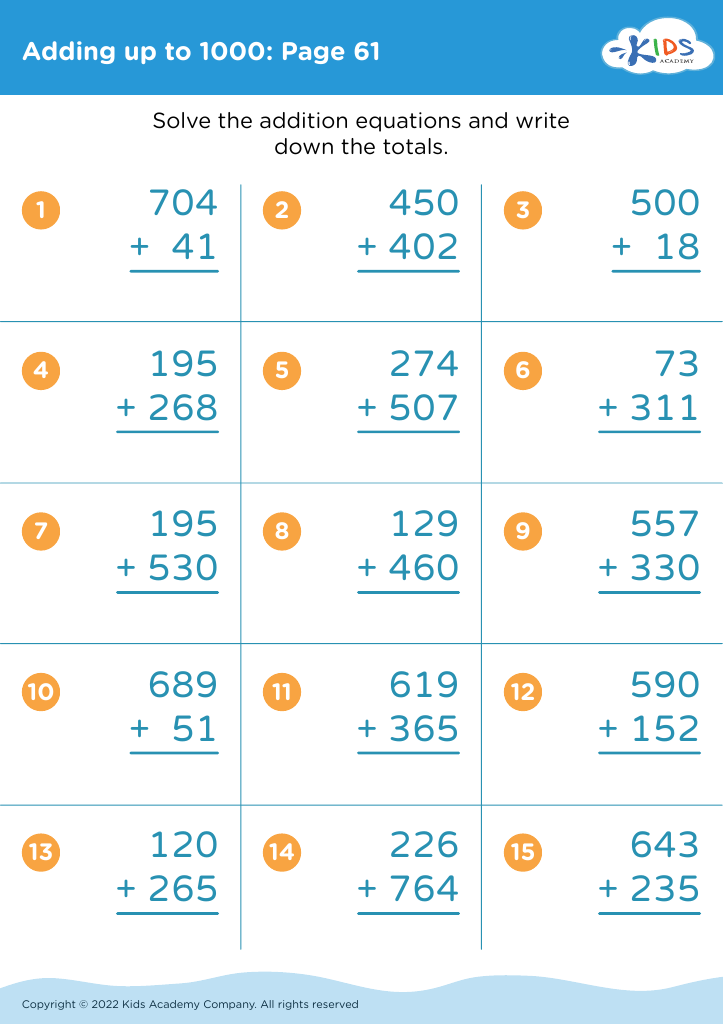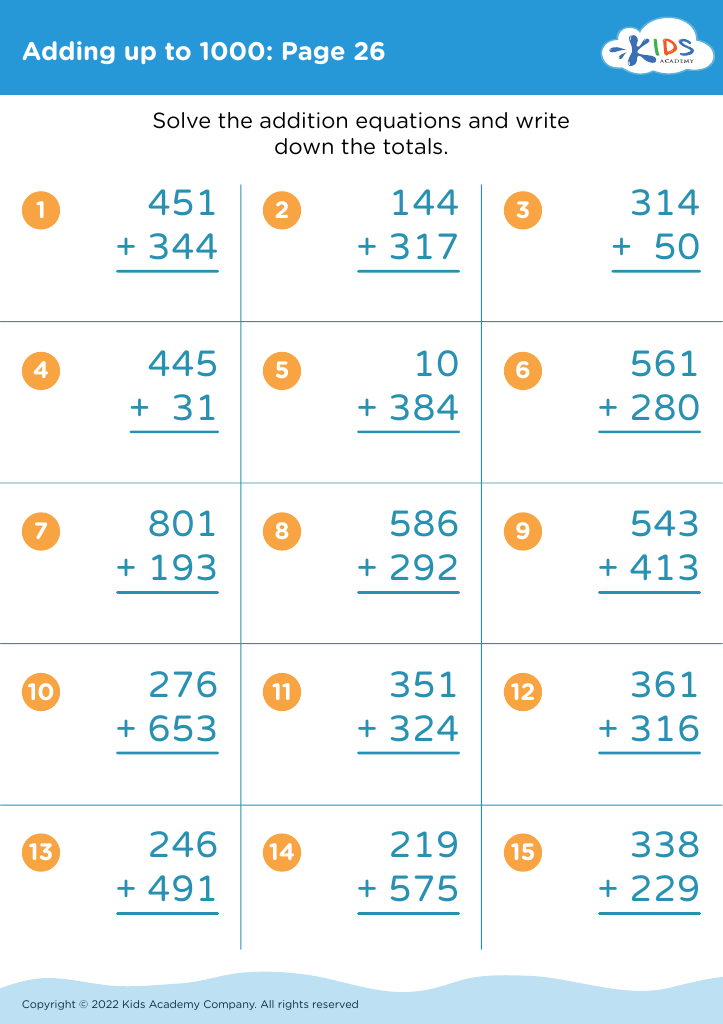Basic Math Skills Adding up to 1000 Misc Worksheets for Ages 6-8
3 filtered results
-
From - To
Discover engaging and educational printable worksheets designed to enhance basic math skills for children aged 6-8. Our comprehensive collection focuses on adding up to 1000, helping young learners build a strong arithmetic foundation. Each worksheet offers a variety of fun and challenging exercises that promote critical thinking, problem-solving, and numerical fluency. Perfect for both classroom use and at-home practice, these resources encourage students to develop confidence and proficiency in math. Visit our page and equip your child with the tools they need to master basic math skills and enjoy the journey of learning addition up to 1000!
Parents and teachers should be keenly aware of the importance of basic math skills, such as adding up to 1000, for children aged 6-8. At this developmental stage, children's brains are highly receptive to learning new concepts and foundational skills. Mastering basic arithmetic early sets the stage for success in more complex math topics.
Arithmetic involving numbers up to 1000 helps children develop strong number sense, an essential component of problem-solving and logical thinking abilities. When children understand how numbers relate to one another, they are better equipped to grasp more advanced mathematical concepts later on, such as multiplication, division, and fractions.
Furthermore, strong math skills foster confidence and a positive attitude towards learning. Children who are proficient in math experience less anxiety related to the subject, enabling them to perform better academically. This confidence can spill over into other areas of study and improve their overall academic performance.
Lastly, math is fundamental to everyday life. Whether budgeting, shopping, or cooking, being able to handle numbers efficiently and accurately is crucial. By ensuring that children develop robust arithmetic skills early on, parents and teachers set them up for lifelong success, both academically and personally.













